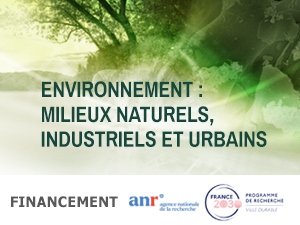Amid a global climate crisis, more frequent and intense heat waves alter people's quality of life and increase morbidity and mortality. Cities are particularly vulnerable to heat because they concentrate people, including many in situations of individual, social and/or environmental fragility, and because the urban fabric, structure, cover and metabolism alter the thermal environment, which generally exacerbates heat stress. Creating cities that sustainably and effectively address the challenge of overheating is thus of utmost importance. In this context, VF++ focuses on the design and implementation of heat-adaptation strategies that integrate green, gray and soft solutions. Beyond cooling cities, the primary goal is to improve the health of citizens as defined by the WHO. From a research point of view, this involves: i) understanding the interactions between physical environments and individuals’ psychological and physiological reactions as well as their experiences of ambiences and practices, depending on socio-spatial specificities, ii) analyzing the effects of these interactions on health, in a context of overheating and iii) assessing the relevance and robustness of integrative heat-adaptation strategies with regards to health.
To meet these objectives and go beyond current knowledge and practices regrading urban heat-adaptation, VF++ brings together researchers in engineering sciences (building and urban physics, human biometeorology), social sciences (architecture, urban planning, social geography, anthropology) and health sciences (epidemiology, thermophysiology, medicine). The consortium also encompasses local authorities, major national technical centers, social landlords, design offices and hospitals, to anchor the project in real urban and health concerns and help translate results into operational terms. Together, VF++ partners will co-construct new research methodologies to :
- analyze how architectural and urban structures can create qualitative physical environments and kinesthetic ambiences that reduce the cooling needs of individuals;
- reliably assess people indoor/outdoor exposure to heat, as well as the effects of heat-adaptation strategies on environmental quality;
- determine how individual and environmental factors affect individuals’ thermo-physiological and sensory responses as well as formal health endpoints and assess these effects;
- relate socio-spatial inequalities to individual and social experiences and practices in tolerating and coping with heat.
The research will produce an interdisciplinary knowledge base on these multidomain relations, as well as multi-criteria and inter-professional analysis frameworks, new tools and indicators. These research products will be experimented, tested and consolidated in various urban development and building projects at different stages of the renovation process. The field of study will be the Lyon metropolitan area, whose contrasted territory will be particularly exposed to heatwaves in the coming decades. VF++ will focus on the meteorological micro-scale and the human scale, at which research-action can be implemented effectively. The project will specifically target residential living spaces, particularly social housing, and prioritize low-tech strategies. To be as close as possible to the realities of overheating experiences, VF++ will also work with public hospital emergency departments, where particularly vulnerable populations are treated. Using a bottom-up approach, VF++ will then tackle the urban scale.


